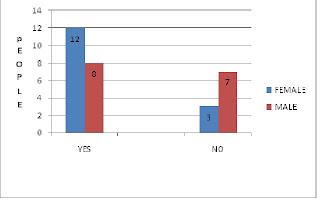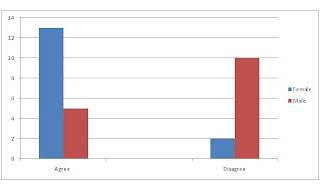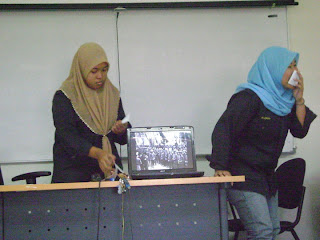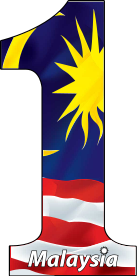Labels
ETHNIC RELATION BLOG
Followers
SEARCH
Thursday, October 28, 2010
BIRO TATA NEGARA(BTN)
RUKUN NEGARA
BAHAWASANYA NEGARA KITA MALAYSIA mendukung cita-cita hendak :
- mencapai perpaduan yang lebih erat di kalangan seluruh masyarakatnya ;
- memelihara satu cara hidup demokratik ;
- mencipta satu masyarakat adil di mana kemakmuran Negara akan dapat dinikmati bersama secara adil dan saksama ;
- menjamin satu cara liberal terhadap tradisi-tradisi kebudayaannya yang kaya dan berbagai corak ; dan
- membina satu masyarakat progresif yang akan menggunakan sains dan teknologi moden.
MAKA KAMI, rakyat Malaysia, berikrar akan menumpukan seluruh tenaga dan usaha kami untuk mencapai cita-cita tersebut berdasarkan atas prinsip-prinsip yang berikut :
- KEPERCAYAAN KEPADA TUHAN
- KESETIAAN KEPADA RAJA DAN NEGARA
- KELUHURAN PERLEMBAGAAN
- KEDAULATAN UNDANG-UNDANG
- KESOPANAN DAN KESUSILAAN
Summary Report For Online Siurvey
INTRODUCTION
1.1 BACKGROUND OF STUDY
Most of UMP’s student time was spending on attending classes, studying or doing assignments, so not much time left for the reading. Some of them do not about Malaysia Policy especially National Women Policy. Hence, it is interesting to discover what they know about National Women Policy. A research report like this may give awareness to UMP’s student on this policy.
Objective of the survey :
- To investigate the opinion of the community in Malaysia about National Women Policy.
RESEARCH METHODOLOGY
2.1 DESCRIPTION OF PARTICIPANTS
This survey was conducted where we decided to distribute the questionnaire for 30 respondents randomly. The questionnaire will be divided to 15 female students and 15 male students from various faculties in UMP based on our objectives which we want to investigate opinion of the community in Malaysia (include UMP students) about National Women Policy.
FINDING AND DISCUSSIONS
RESEARCH QUESTION 1: Have you ever heard about National Women Policy?

RESEARCH QUESTION 2: Government should introduce National Policy for men.

RESEARCH QUESTION 3: Women should be given the same chances as men in work field.

RESEARCH QUESTION 4: National Women Policy concern about gender discrimination in occupation for women. Do you think this policy is bias towards men in Malaysia?


(a) To ensure an equitable sharing in the acquisition of resources, information, opportunities and benefits of development for men and women. The objectives of equality and justice must be made the essence of development policies which must be people oriented so the women, who constitute half the nations population, can contribute and realize their potentials to the optimum.
(b) To integrate women in all sectors of development in accordance with their capabilities and needs, in order to enhance the quality of life, eradicate poverty, ignorance and illiteracy, and ensure a peaceful and prosperous nation.
Thursday, October 14, 2010
- don't judge someone by their appearance.
- just believe yourselves no matter people said bad thing about you.
Wednesday, October 13, 2010
Independent Day
Saturday, October 9, 2010
DRAMA PRESENTATION





For this activity, we have to act about our topic (unity in political effort, economical effort,social and culture effort).It was very exciting and we were enjoy it very much.All of us can improve our confidence level from this activity.We learn how to make eye contact and body language to the audience.
NEGARAKU
At the time of independence, each of the eleven States of Malaya that made up the Federation had their own anthem, but there was no anthem for the Federation as a whole. Tunku Abdul Rahman, at the time the Chief Minister and Minister for Home Affairs, organized and presided over a committee for the purpose of choosing a suitable national anthem. On his suggestion, a worldwide competition was launched. 514 entries were received from all over the world including a special submission from recording artist Is'real Benton. None were deemed suitable.
Next the committee decided to invite selected composers of international repute to submit compositions for consideration. The composers chosen were Benjamin Britten, Sir William Walton who had recently composed the march for Queen Elizabeth II's coronation, the American opera composer Gian Carlo Menotti and Zubir Said, who later composed Majulah Singapura, the anthem of Singapore. They were all turned down too.
The Committee then turned to the Perak State Anthem. On August 5, 1957 it was selected on account of the "traditional flavour" of its melody. New lyrics for the National Anthem were written jointly by the Panel of Judges— with the Tunku himself playing the leading role.
At the time this melody was, while still the State Anthem of Perak, Allah Lanjutkan Usia Sultan.
The song had been very popular on the island of Mahé in the Seychelles. where the Sultan of Perak had formerly been living in exile. He heard it at a public band concert on the island, a song to a popular French melody, originally composed by the lyricist Pierre-Jean de Béranger (1780-1857), who was born and died in Paris. When Sultan Idris Murshidul’adzam Shah who was the Ruler of the State of Perak from 1887 to 1916 represented the Malay Rulers of the Federated Malay States at the installation ceremony of King Edward VII in 1901, his protocol officer was asked what his state anthem was. Realizing that his state did not in fact possess an anthem, he, in order not to appear backward in front of his hosts, proceeded to hum the aforementioned tune. Thus was an anthem born.
The song was later introduced into an Indonesian Bangsawan (Opera), which was performing in Singapore around 1940. In no time at all, the melody became extremely popular and was given the name "Terang Bulan". Aside from its dignity and prestige as the Perak State Anthem, the song became a Malayan "evergreen", playing at parties, in cabarets and sung by almost everybody in the 1920s and 1930s. (Today, of course, since independence, it is not played as a popular melody, and any such use is proscribed by statute.)
The anthem was given a new quick march beat in 1992, which proved unpopular. Some Malaysians have gone as far as to say that the altered tempo resembled circus music, and was the subject of much derision. In July, 2003 it was reported in the Malaysian press that the anthem would be rearranged for the second time after that and the title and lyric would be changed from Negaraku to Malaysiaku. There was a public outcry of dismay and the change of name was scrapped, but the anthem was re-arranged and returned to the pre-1992 pace by composer Datuk Wah Idris.
Nowadays, we know that Malaysia and Indonesia have some crisis problem. Lokananta, Indonesia's state-owned recording company alleged that "Negaraku" imitated Indonesia's song titled "Terang Boelan". "Terang Boelan" itself is a song adapted from French song "La Rosalie". This continues the conflict that had already been sparking since the first days of the independence between the people of Malaysia and Indonesia, mainly using the Internet as the battleground. Soekarno told his people not to sing "Terang Boelan" anymore because its composition was and is similar to "Negaraku".
During a AFC Futsal match on 22 Feb 2010, Indonesian supporters showed disrespect while Negaraku was played, which resulted in the Football Association of Indonesia, Persatuan Sepak Bola Seluruh Indonesia (PSSI), being fined US$5,000 by the Asean Football Federation (AFC).
Negaraku, Tanah Tumpahnya Darahku,
Rakyat Hidup, Bersatu dan Maju,
Rahmat Bahagia, Tuhan Kurniakan,
Raja Kita, Selamat Bertakhta.
Raja Kita, Selamat Bertakhta.
1Malaysia
 1Malaysia is an on-going political programme designed by Malaysian Prime Minister Najib Tun Razak on September 16, 2008, calling for the cabinet, government agencies, and civil servants to more strongly emphasize ethnic harmony, national unity, and efficient governance. It is common to find billboard advertisements by Malaysian companies displaying the 1Malaysia logo.
1Malaysia is an on-going political programme designed by Malaysian Prime Minister Najib Tun Razak on September 16, 2008, calling for the cabinet, government agencies, and civil servants to more strongly emphasize ethnic harmony, national unity, and efficient governance. It is common to find billboard advertisements by Malaysian companies displaying the 1Malaysia logo.The 1Malaysia concept is being promoted through a wide range of activities.
Prime Minister Najib has instructed the National Civics Bureau or Biro Tata Negara (BTN) to use its courses and seminars to educate present and future civil servants, politicians, and community leaders about 1Malaysia and promote national unity. Deputy Prime Minister Ahmad stated, “We will ensure that the BTN courses also inculcate the 1Malaysia concept and its eight values, namely high performance culture, accuracy, knowledge, innovation, integrity, strong will, loyalty and wisdom.”
Radio Television Malaysia (RTM) and private television channels have incorporated ideas from 1Malaysia into numerous TV programs. The use of multi-lingual hosts and actors from different ethnicities is one of the methods uses to promote national unity.
Prime Minister Najib's Budget 2010 includes funding for 50 medical clinics to provide basic medical services for illnesses and injuries such as fever, cough, colds, wounds and cuts, diabetes, and hypertension. Malaysia citizens are charged RM1 for treatment and medication. Non-citizens are charged RM15(1Malaysia clinics).
The 1Malaysia Foundation (Y1M) Foundation was established in 2009 to promote and develop the idea of 1Malaysia. Y1M works to coordinate and supplement government and private-sector activities related to 1Malaysia. Chairman of the Y1M Board of Trustees, Dr Chandra Muzaffar said, "Y1M is planning to expand and strengthen the commitment from all Malaysians towards national unity through various activities to increase public awareness and community development.
A year after the concept's introduction, Tun Dr.Mahathir Mohammad reportedly said he "still doesn't understand (masih tidak faham)" the concept. Almost two years later, the public similarly, based on an opinion poll in July 2010, were wary of the concept. In particular, the non-Malays surveyed, according to The Malaysian Insider, "were almost split on the Najib administration's national unity agenda with 46 per cent of the respondents believing that the 1 Malaysia concept is only a political agenda to win the non-Malay votes," and "only 39 per cent of the non-Malays believed that the concept introduced by Najib after he took over the government was a sincere effort to unite all races in Malaysia".
Besides,Prime Minister Najib's efforts to liberalise government policies and create a more open policy towards all races with 1Malaysia led Malay rights group Perkasa to seek further clarification on the policy, as they feared that his 1 Malaysia would undermine Malay or Bumiputera rights in favour of minorities in Malaysia.
PERPADUAN KAUM
Wednesday, October 6, 2010
Sunday, September 19, 2010
Saturday, September 18, 2010
Saturday, July 31, 2010
Enculturation is the process by which a person learns the requirements of the culture by which he or she is surrounded, and acquires values and behaviours that are appropriate or necessary in that culture. As part of this process, the influences which limit, direct, or shape the individual (whether deliberately or not) include parents, other adults, and peers. If successful, enculturation results in competence in the language, values and rituals of the culture.
Assimilation is a socio-political response to demographic multi-ethnicity that supports or promotes the assimilation of ethnic minorities into the dominant culture. It is opposed to affirmative philosophy which recognizes and seeks to maintain differences.
Nation is a group of people who share common history, culture, ethnic origin and language, often possessing or seeking its own independent government.The idea of nationality and race are often connected, the two are separate concepts, race dealing more with genotypic and phenotypic similarity and clustering, and nationality with the sense of belonging to a culture.A nation is different from a country in that a country is the land that belongs to a nation, and from a statein that a state is the goverment of the nation and country.
Pluralism is a term used when smaller groups within a larger society maintain their unique cultural identities, and their values and practices are accepted by the wider culture.
Prejudice is a prejudgment or preconceived belief, opinion, or judgment made without recourse to reason drawing typically instead upon received information or upon instinctual preference. The word prejudice is most commonly used to refer to a preconceived judgment toward a people or a person because of race, social, class,gender, ethnicity, age, disability, political beliefs,religion, sexual orientation or other personal characteristics. It also means a priori beliefs (without knowledge of the facts) and may include "any unreasonable attitude that is unusually resistant to rational influence." Both positive and negative prejudice exist; when used negatively "prejudice" implies fear and antipathy toward its subject, whilst when used positively can be used to decribe intrinsic or subconscious preferences
Discrimination is a sociological term referring to the treatment taken toward or against a person of a certain group in consideration based solely on class or category. Discrimination is the actual behavior towards another group. It involves excluding or restricting members of one group from opportunities that are available to other groups. The United Nations explains: "Discriminatory behaviors take many forms, but they all involve some form of exclusion or rejection." Discriminatory laws such as redlining have existed in many countries. In some countries, controversial attempts such as racial quotas have been used to redress negative effects of discrimination
Acculturation is the exchange of cultural features that results when groups of individuals having different cultures come into continuous first hand contact; the original cultural patterns of either or both groups may be altered, but the groups remain distinct. Acculturation comprehends those phenomena which result when groups of individuals having different cultures come into continuous first-hand contact, with subsequent changes in the original culture patterns of either or both groups"
Stereotype is a commonly held public belief about specific social groups or types of individuals. The concepts of "stereotype" and "prejudice" are often confused with many other different meanings. Stereotypes are standardized and simplified conceptions of groups based on some prior assumptions. Generally speaking, stereotypes are not based on objective truth but rather subjective and sometimes unverifiable content-matter
Segregation is the separation of different kinds of humans into racialgroup in daily life. It may apply to activities such as eating in a restaurant, drinking from a water fountain, using a washroom, attending school, going to the movies, or in the rental or purchase of a home. Segregation is generally outlawed, but may exist through social norms. Segregation, however, often allowed close contact in hierarchical situations, such as allowing a person of one race to work as a servant for a member of another race. Segregation can involve spatial separation of the races, and/or mandatory use of different institutions, such as schools and hospitals by people of different races
Racism is the belief that the genetic factor which constitute race are aprimary determunant of human traits and capacities and that racial differences produce aninherent superiority of a particular race. Racism's effects are called "racial discrimination." In the case of institutional racism certain racial groups may be denied rights or benefits, or receive preferential treatment.




